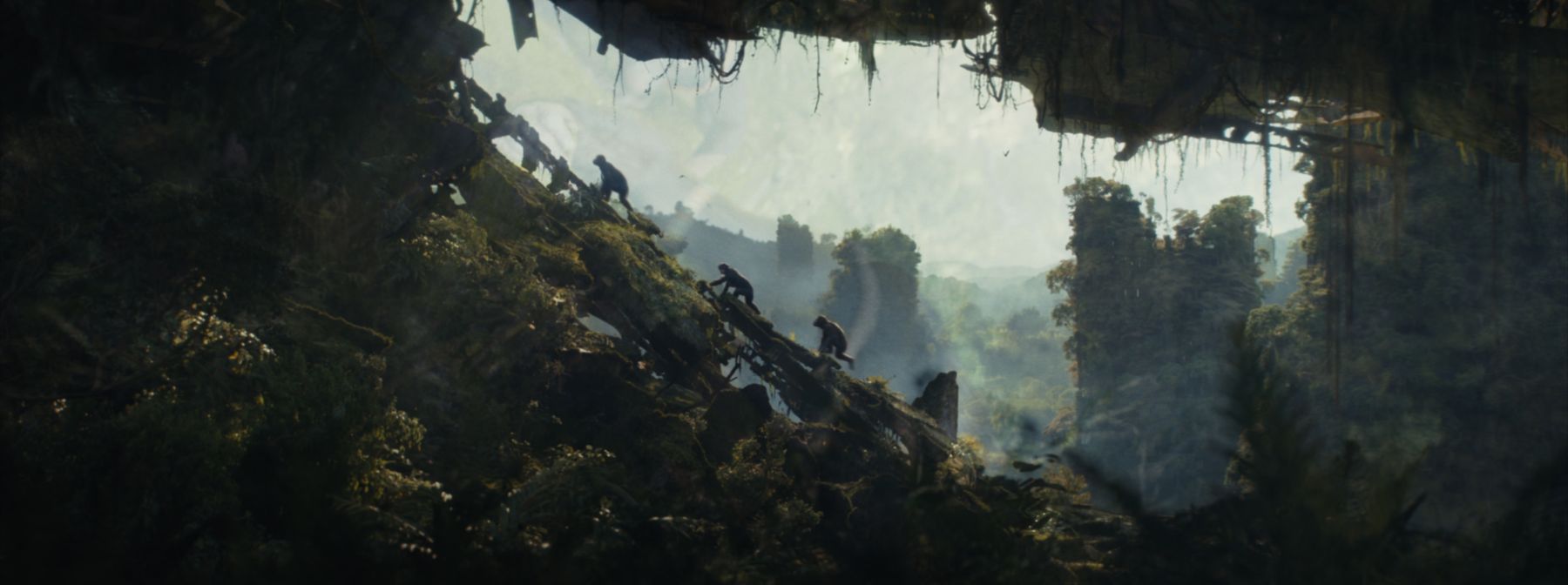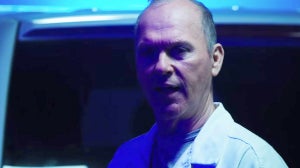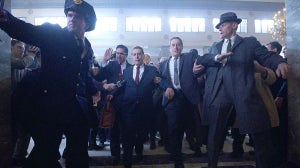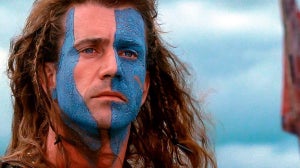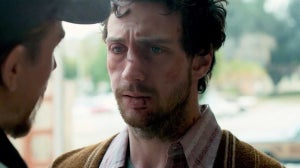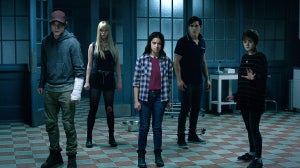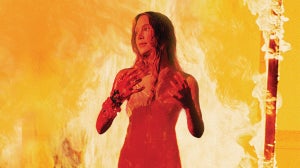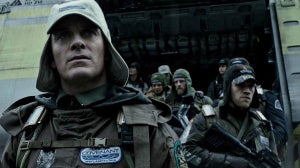
Before the recent prequel trilogy – and the ill-fated 2001 Tim Burton remake – the original string of seventies sequels took the story back from a dystopian future to the then-present day, each instalment acting as a social commentary on hot button issues ranging from the threat of nuclear war to the Civil Rights movement. They were bonkers big swings that you can’t imagine Hollywood risking hundreds of millions of dollars to replicate today.
This might be why it’s such a surprise that Kingdom Of The Planet Of The Apes, the first in a new trilogy aiming to bridge the gap between the prequels and the original Charlton Heston vehicle, returns the franchise to that era of risky cultural commentary. Set 300 years after the death of Andy Serkis’ revolution igniting ape Caesar, Kingdom charts how his legacy has become tainted over the years, with different clans viewing his teachings in very different lights, with villain Proximus Caesar (Kevin Durand) leading an army to kidnap and enslave all those who don’t follow his lessons.
In this world, Caesar is now worshipped as a God – and the most evil people misinterpret his life lessons to justify their every bad move. Speaking to Zavvi, director Wes Ball said that this religious allegory is the key to this story.
He said: “This is a story about how people become myths and legends, and how everything they stood for can be bent by bad actors, or erode further away as time goes on. I came onto the movie before there was a script, and as we noodled with it, a lot of things fell away, and initially, this reinterpretation of Caesar as a God-like figure was much more overt.
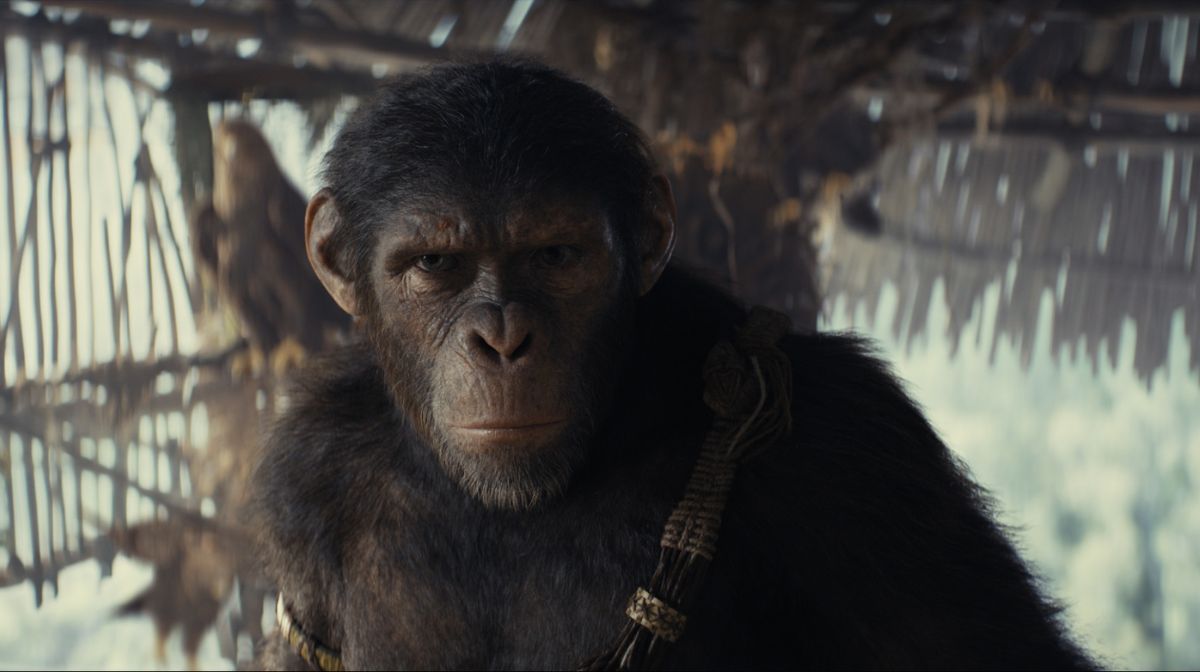
“The previous three movies started on this path, and it is a neat concept; how Caesar would grow to become a figure that could inspire the apes to behave in certain ways. Rick Jaffa and Amanda Silver, the screenwriters of that trilogy, are producers on this movie too, and they’ve always spoken about those three movies being the story of Caesar’s journey from Pinocchio to Moses – we wanted this to be the direct continuation of that.”
The big challenge, as the first part of a new trilogy set many generations later, was finding a way to succinctly build on from that theme, all whilst bridging the gap to the original story, without any characters from either era of the franchise.
“It was a nice creative constraint, in a weird way”, Ball continued. “We’re a sequel to a prequel, and we’re still 1,000-plus years from the Charlton Heston reality, so it gave us room to find a new tone, tell a new kind of tale, but still feel like we belong in the lineage of those previous movies.
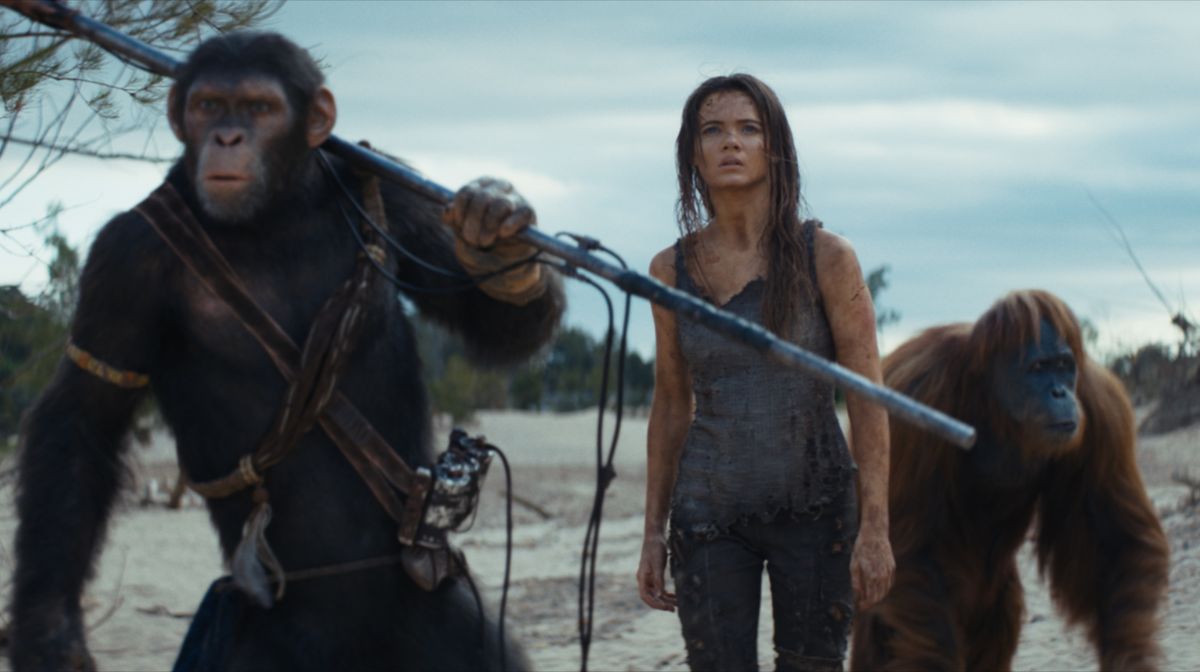
“The most daunting thing is living up to the expectations people have from this franchise!”
Another “daunting” challenge facing Ball was finding a new ape protagonist to follow in Serkis’ motion-captured footsteps. He discovered a worthy successor in Owen Teague, who was in his early twenties when cast as Noa, a young Chimpanzee hunter who embarks on a cross-country journey after his family get captured by Proximus Caesar’s clan.
As with any blockbuster role – even one in which you wouldn’t be able to recognise them beneath the motion capture technology! – Teague was one of countless actors who auditioned to be the new franchise lead, and Ball knew almost immediately he’d found his guy.
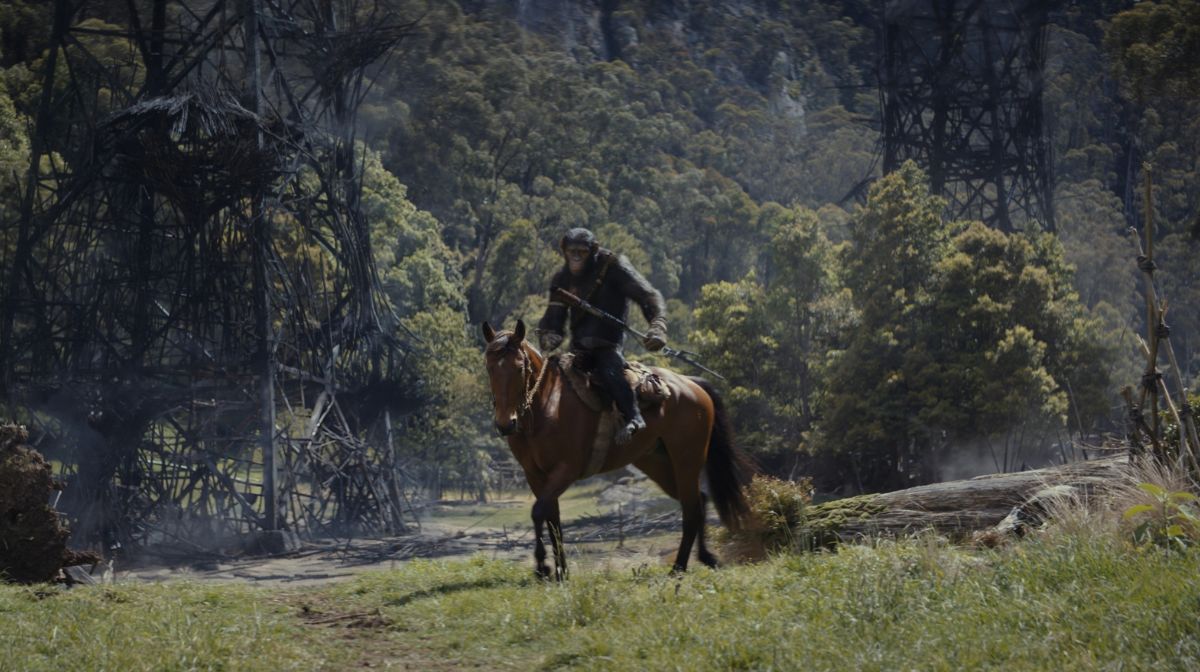
“Personally speaking, casting is entirely based on instinct. I thought it would be difficult to find someone to follow up Andy Serkis, and then one of the first audition tapes I saw was from Owen, running around his apartment acting like a monkey; he was awesome, and when going through other people’s auditions after that, my mind kept returning to him running around.
“All of our other actors had different approaches to becoming apes in terms of behaviours and voices, so we put them through a training school, even getting to speak to Andy and glean some wisdom from him. It was a learning process for all of us, as a new team inheriting this franchise, but going in we all knew there’d be a steep learning curve needed to make these movies the right way.”
This is Ball’s first film since directing each entry in the Maze Runner trilogy, and he’s deeply aware that he may be getting pigeonholed as the go-to guy when you need to bring a sci-fi dystopia to life.
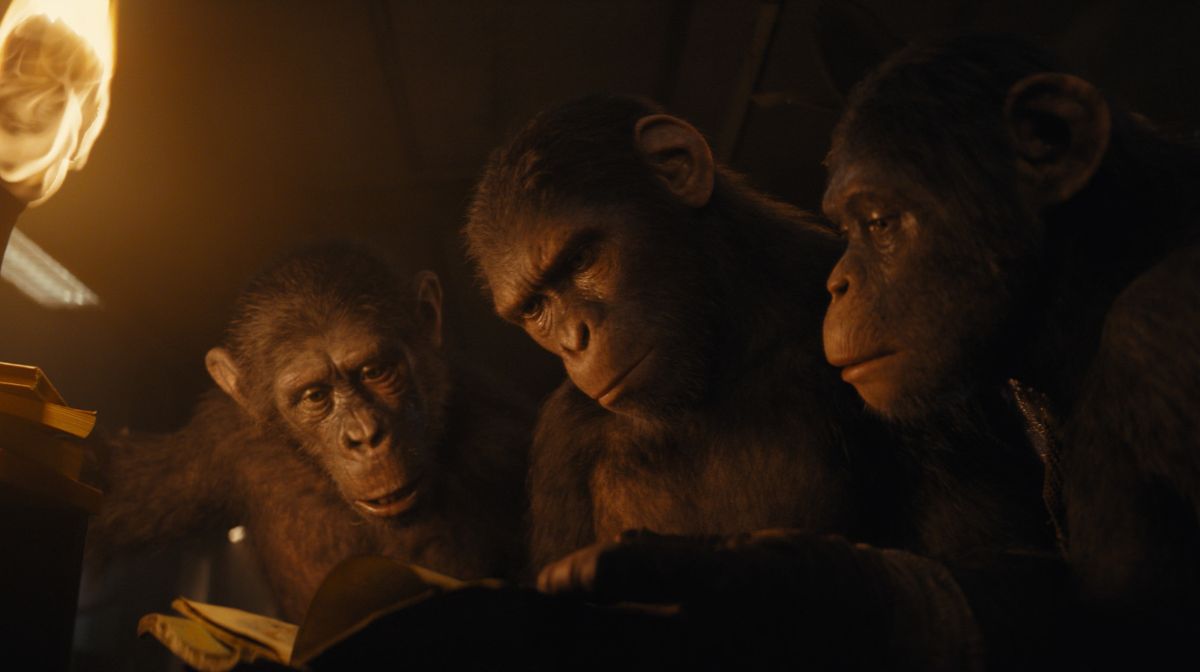
“I never set out to make a dystopian movie, I didn’t write the Maze Runner movies and I didn’t write this, but my first short film Ruin depicts a world very similar this one, so I think I have to make something that isn’t set in a dystopia now!
“We took a lot of care into making sure this movie wasn’t “post-apocalyptic” in the sense of fire and brimstone; a destroyed, gross, inhabitable world. This is a beautiful world that has been overtaken, a lush, green space full of nature, which the animal kingdom has reclaimed as its own.
“Visually, our main goal was to make a world that you’d want to visit, even if you might not survive!”
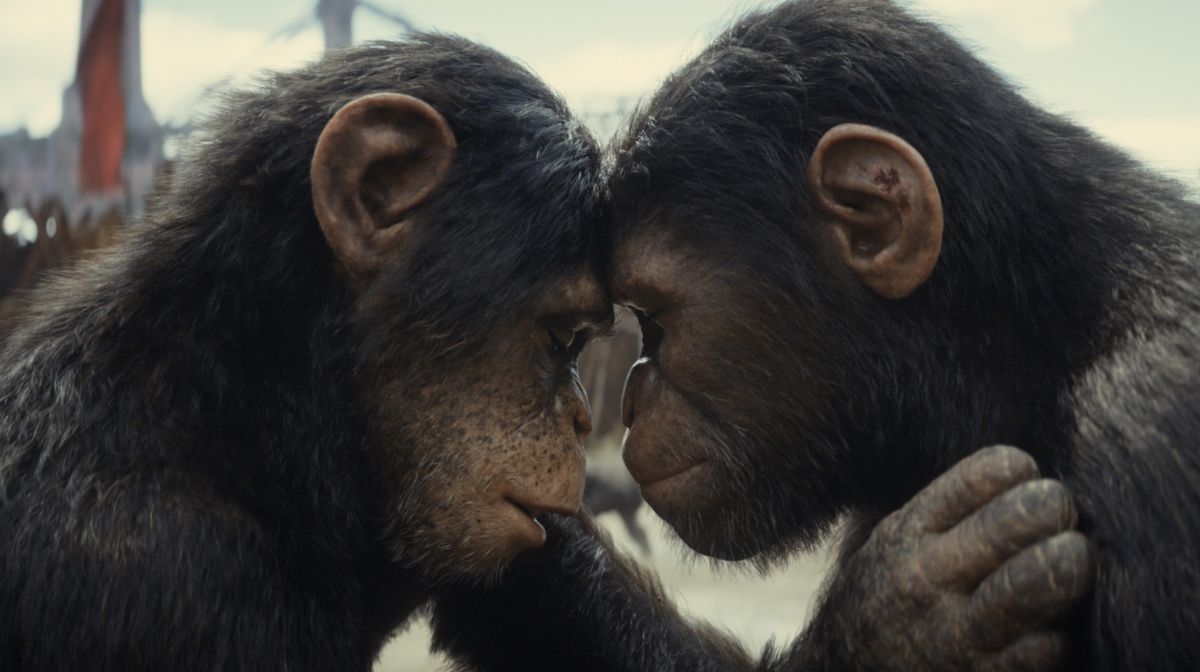
It may not be a dystopia, but Ball’s next movie will see him bring another fantastical world to life: the Kingdom of Hyrule. The filmmaker was announced as the director for the live action Legend Of Zelda movie by Nintendo late last year, although we’ve had no news on the project since then.
Using my degree in journalism, and the experience gleamed via four years working in a newsroom prior to joining Zavvi, I believed I could get Ball to give me an exclusive, sorely needed update on the project. We had a good rapport, so surely he’d be able to spill the beans on how far along the movie is in development?

“So Wes”, I asked, “there haven’t been any updates on the Zelda movie you’re directing for a while. Can you let us know what’s happening with it?”
“No”, he laughed, “But I can tell you it will be awesome!”
Thanks for that hard-hitting exclusive Wes – you heard it here first!
Kingdom Of The Planet Of The Apes is released in UK cinemas on Thursday, 9th May.
